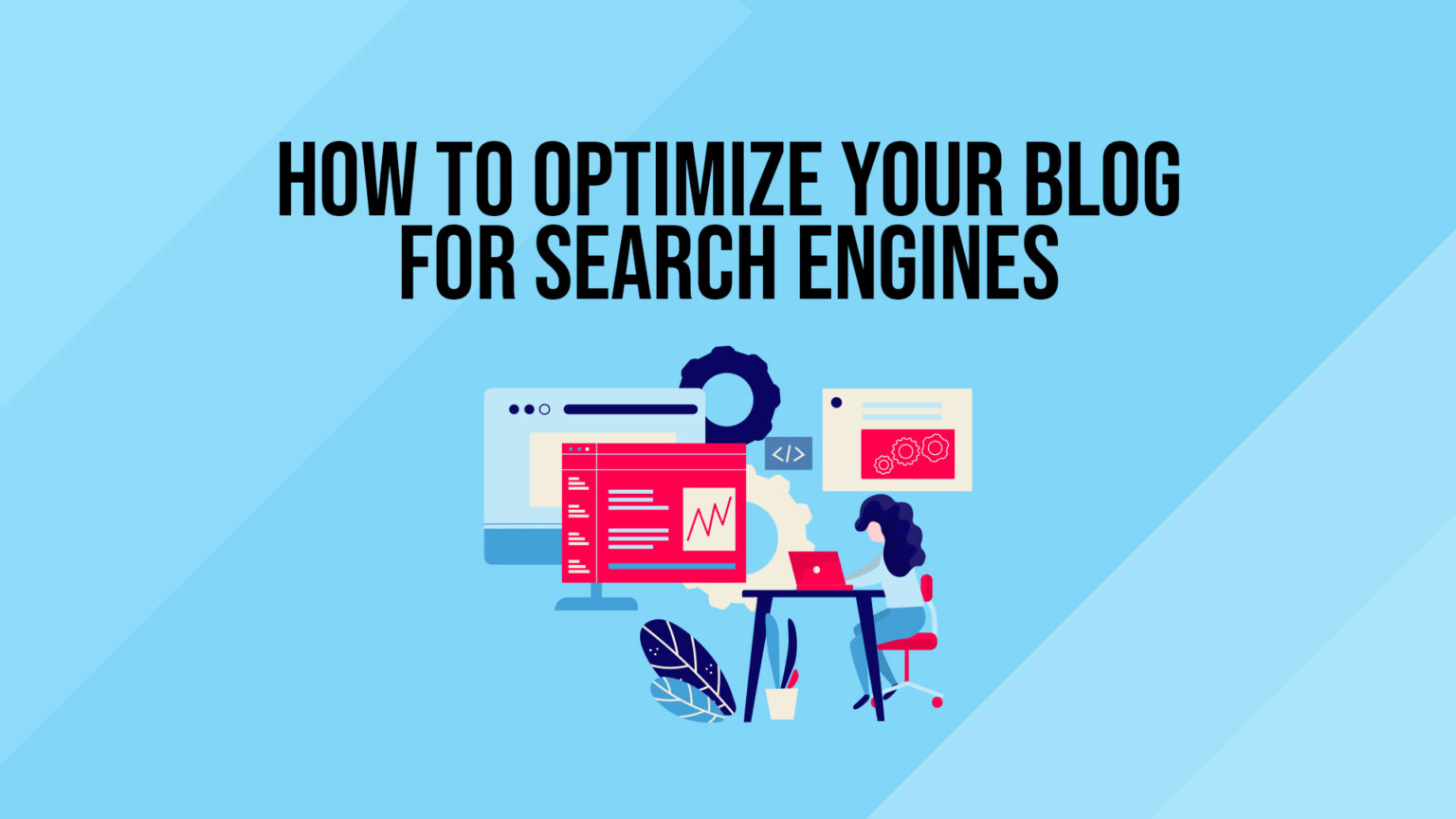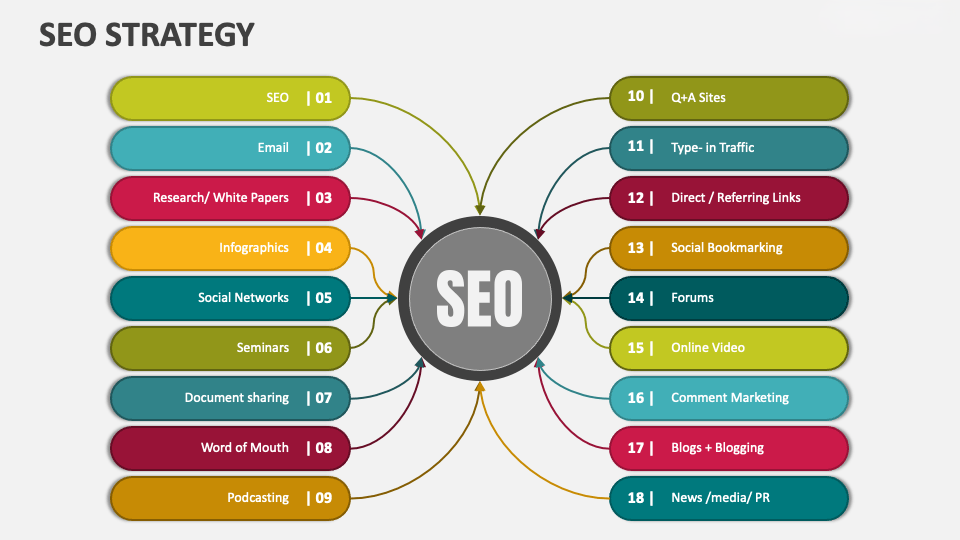Did you know 56% of consumers buy from a company after reading their blog? This shows how powerful blog optimization for search engines is. In today’s digital world, knowing SEO is key to getting more visitors and boosting your online presence.
How To Optimize A Blog For Search Engines? Optimizing a blog is more than just writing content. It’s about creating a detailed plan that includes keyword research, content optimization, and technical SEO. By using these methods, you can make your blog more visible in search results and draw in more customers.
Even though only 10% of marketers say blogging is their biggest win, those who succeed see big gains. From more organic clicks to better index coverage, good blog SEO can turn your site into a strong marketing tool. Let’s explore the world of search engine optimization and learn how to make your blog shine in the digital world.
Key Takeaways
- Blog optimization greatly affects consumer buying decisions
- Good SEO strategy mixes keyword research, content creation, and technical optimization
- Quality content that meets E-E-A-T guidelines is key to better rankings
- On-page SEO includes smart keyword use and catchy meta descriptions
- Keeping your content fresh and building backlinks is vital for ranking
- Using SEO tools helps track and boost your blog’s performance
Understanding the Importance of Blog SEO
Blog search engine optimization is key to getting free traffic from search engines. By using smart SEO blog optimization strategies, you can grow your audience. You also become a thought leader in your field.
What is blog SEO?
Blog SEO means making your blog content better for search engines. This includes on-page SEO, like using the right keywords and organizing your content well. It also includes off-page SEO, like getting quality backlinks.
Why blogging helps with SEO
Blogging boosts your SEO big time. It lets you create content that answers search queries, bringing in more organic clicks. Google sends over 396,000 visitors a month to sites that do blog SEO well.
Key benefits of optimizing your blog
SEO blog optimization brings many benefits:
- Improved rankings for targeted keywords
- Increased organic traffic
- Enhanced brand awareness
- Opportunities for internal linking
- Attraction of quality backlinks
A survey of over 1000 bloggers showed SEO is a top traffic source, after email marketing. By focusing on blog SEO, you can tap into this powerful traffic source and grow your online presence.
“SEO is not about tricking Google. It’s about partnering with Google to provide the best search results for Google’s users.” – Phil Frost
Conducting Effective Keyword Research for Your Blog
Keyword research is key to blog SEO success. It shows what your audience searches for and how to meet their needs. Let’s look at the main steps for effective keyword research for your blog.

Identifying your target audience
Knowing who you’re writing for is crucial. Create buyer personas to understand your audience’s demographics, interests, and pain points. This helps guide your keyword and content choices.
Using keyword research tools
A good keyword research tool is essential. Tools like SEMrush’s Keyword Magic Tool find relevant topics and phrases. They’re great for new blogs wanting to grow online.
| Keyword | Monthly Search Volume | Keyword Difficulty |
|---|---|---|
| SEO tips for small businesses | 300 | High |
| Small business SEO | 2,500 | Very High |
Analyzing search intent
Understanding search intent is vital. Use your keyword tool’s “Questions” tab for topic ideas. This helps with keyword grouping and boosts your ranking chances.
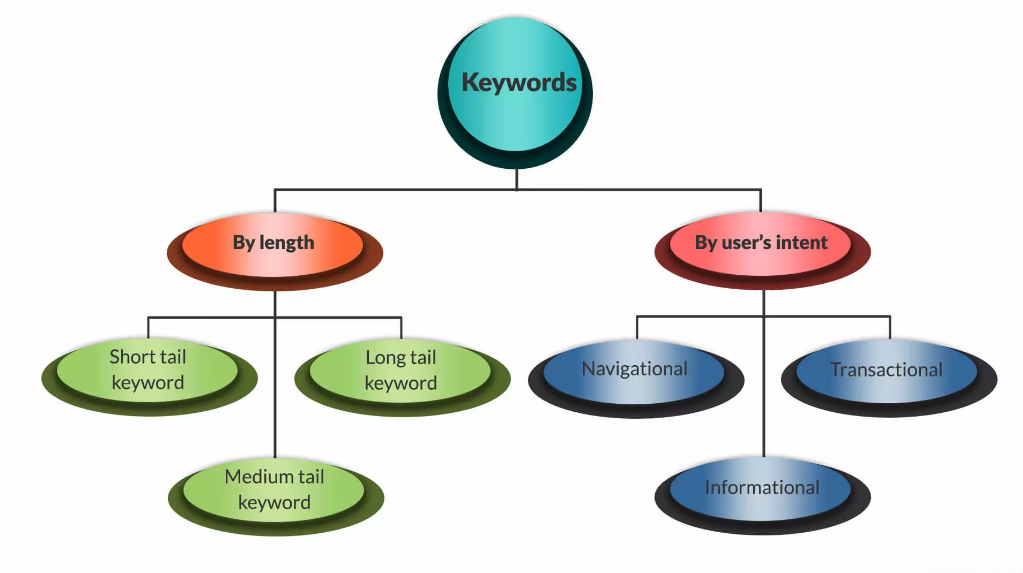
Keep track of keyword popularity and do SEO competition analysis. Focus on relevant, less competitive keywords. This will help your blog get more visibility and attract more targeted visitors.
How to Optimize a Blog for Search Engines
To make your blog more visible online, you need smart strategies. Let’s look at key ways to boost your blog’s SEO and online presence.
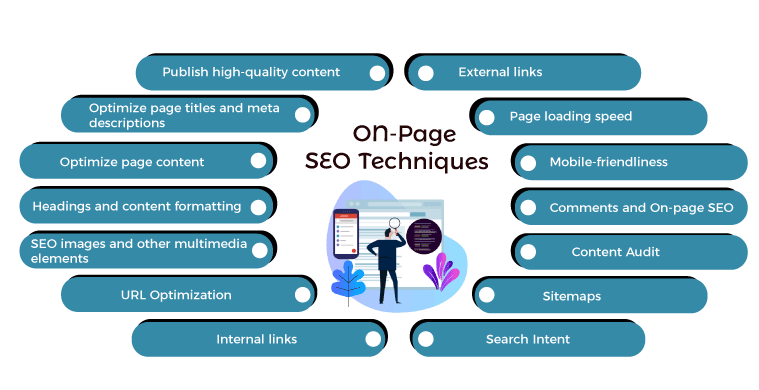
On-page SEO Techniques
On-page SEO is crucial for content optimization. Begin by crafting catchy titles under 60 characters to attract more views and better rankings. Use headers (H1, H2, H3) to organize your content, helping both readers and search engines. Make sure to include relevant keywords in your titles and content.
Creating High-Quality Content
Quality content is essential for SEO. Create valuable, engaging posts that meet your audience’s needs. Use keyword research tools to find topics your readers are searching for.
Strive for a balance between SEO optimization and readability. Search engines favor content that attracts links from other sites.
Optimizing Images and Multimedia
Image optimization is key for SEO. Add descriptive alt text to your images to improve searchability and accessibility. Include videos and other multimedia to increase engagement and keep readers longer.
These elements enhance user experience and boost your SEO efforts.
| SEO Element | Best Practice | Impact |
|---|---|---|
| Title Length | 60 characters | Improved search ranking |
| Meta Description | Up to 155 characters | Higher click-through rates |
| Headers | Use H1, H2, H3 tags | Better content structure |
| Image Alt Text | Descriptive and keyword-rich | Enhanced image searchability |
By using these strategies, you’ll optimize your blog for search engines. This will help attract more readers to your site.
Technical SEO Considerations for Blogs
Technical SEO is key to your blog’s success. A good site structure is the base of a well-optimized blog. Use subfolders (like example.com/blog) instead of subdomains for better SEO. Also, make your URLs evergreen by removing dates to keep content fresh.
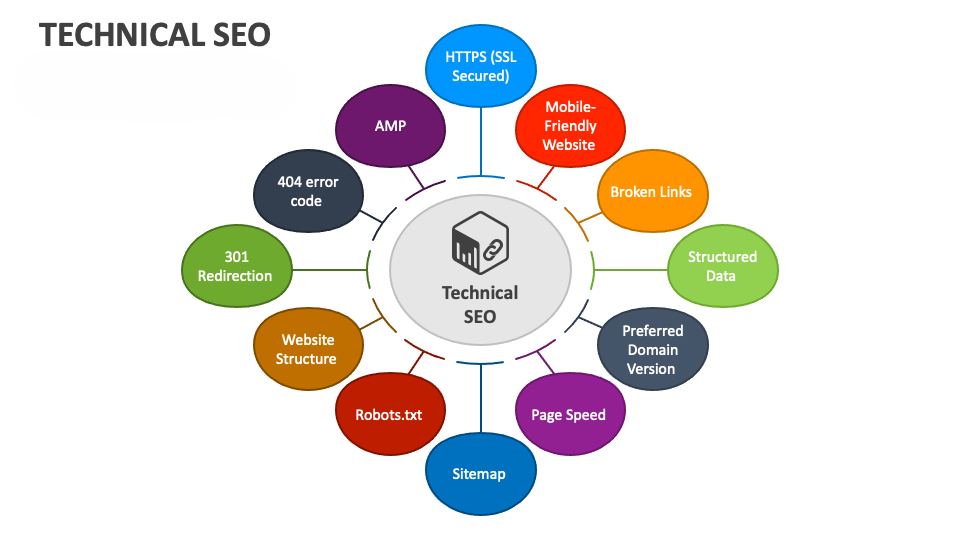
Mobile optimization is now a must. Most online experiences start on search engines. So, your blog must look and work well on mobile devices. A web page audit analyzer can spot areas to improve your site’s mobile performance.
Site speed is also crucial. Slow pages can cause people to leave quickly, hurting your search rankings. Make your images smaller and simplify your code to speed up your site. Google PageSpeed Insights can give you tips on how to improve.
Use XML sitemaps to help search engines find and index your content. This is especially important for big blogs with lots of posts. Regularly check your blog’s performance in search results with a live SERP analysis tool. This helps you find ways to get better.
| Technical SEO Factor | Impact on Blog Performance |
|---|---|
| Site Structure | Improves crawlability and SEO effectiveness |
| Mobile Optimization | Enhances user experience and search rankings |
| Page Speed | Reduces bounce rates and improves rankings |
| XML Sitemaps | Facilitates better indexing of content |
By focusing on these technical SEO areas, you can build a strong foundation for your blog’s success. This will help with search rankings and user engagement.
Conclusion: Implementing Your Blog SEO Strategy
Having a strong SEO strategy for your blog is key in today’s digital world. It helps you get more online visibility and attract more visitors. High-quality content with the right keywords is the base of a successful blog.
Start by organizing your categories and tags well. This makes it easier for users to find what they need and improves your site’s structure. Also, make sure your site works well on mobile devices and loads quickly. Aim for under two seconds to keep visitors from leaving quickly.
It’s important to track your blog’s performance. Look at organic traffic, bounce rate, and time spent on your pages. Also, watch your keyword rankings to see what brings visitors to your site. Using a good blog optimization tool can help a lot.
Don’t worry, improving your blog’s SEO is doable. Just follow these tips and keep up with search engine updates. This will help you get more readers and make your blog more visible.
FAQs – How To Optimize A Blog For Search Engines
What is blog SEO?
Blog SEO is about making your blog easy for search engines to find. It uses techniques like finding the right keywords, creating good content, and optimizing your site. It also includes building links and improving your site’s technical setup.
Why is blogging important for SEO?
Blogging is key for SEO because it makes your site a go-to for answers. It also boosts the number of clicks from search engines and keeps your site fresh. Plus, it helps with internal linking and attracting quality backlinks.
What are the key benefits of optimizing a blog for search engines?
Optimizing your blog can help you rank higher for keywords and earn backlinks. It also boosts your brand and keeps your content fresh. You’ll grow your audience, become a thought leader, and attract more leads.
How do you conduct effective keyword research for a blog?
Use tools like Semrush’s Keyword Magic Tool to find topics people search for. Look for long-tail keywords with less competition. Analyze search intent and consider volume and difficulty. The “Questions” tab is great for finding ideas.
What on-page SEO techniques should you use for blog optimization?
For on-page SEO, optimize title tags, meta descriptions, URLs, and H1 tags with your target keywords. Create high-quality, unique content that meets search intent. Don’t forget to optimize images and multimedia.
What technical SEO considerations are important for blogs?
Technical SEO includes ensuring your site is crawled and indexed properly. Optimize page speed and use SEO plugins for site structure. Place blogs on subfolders, use evergreen URLs and create XML sitemaps.
How do you implement a comprehensive blog SEO strategy?
A good blog SEO strategy combines keyword research, quality content, and on-page optimization. Add technical SEO, internal linking, and analytics monitoring. Keep refining your strategy with algorithm updates.

